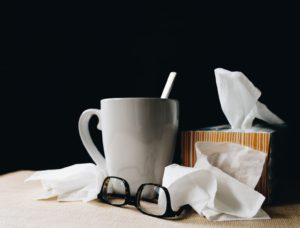 There are several steps you can take to protect yourself against the recently discovered strain of the coronavirus, called “coronavirus disease 2019” or COVID-19.
There are several steps you can take to protect yourself against the recently discovered strain of the coronavirus, called “coronavirus disease 2019” or COVID-19.
The virus has been making headlines since December 2019, when it was initially detected in China, and has since spread to more than 100 countries outside of China. The majority of patients will display mild symptoms, which can include fever, cough, and shortness of breath. Some people may never develop symptoms. Most of those infected will recover on their own.
However, for a minority of patients, COVID-19 can cause serious illness and may cause difficulty breathing. Older adults and those with underlying health issues, such as diabetes, lung disease and heart problems, are more likely to develop serious illness.
On March 10, Governor Charlie Baker declared a state of emergency in the state of Massachusetts to support the state’s response to the situation. As part of the declaration, the Massachusetts Emergency Management Agency (MEMA) was activated, bringing together health, human services, public safety and other government agencies. The Baker-Polito Administration urges older adults and those with health issues to avoid large crowds and events.
If you are not feeling well, the World Health Organization (WHO) recommends that you stay home. If you are experiencing a fever, cough, and difficulty breathing – seek medical attention. If you do seek medical attention, WHO recommends that you call in advance, which enables your health care provider to direct you to the appropriate facility.
Here are some guidelines from WHO to help reduce the spread of infection:
- Wash your hands with soap and water, or clean your hands often with an alcohol-based hand sanitizer
- Avoid touching your eyes, nose, or mouth
- Sneeze into your elbow or a tissue
- Avoid close contact with anyone with a fever or cough, including hugging or shaking hands
- If you are caring for someone who is showing symptoms, wear a mask and wash your hands frequently
- If you are not feeling well – even if you are only experiencing a mild headache or runny nose – stay home until you recover
- If you are experiencing a fever, cough, and difficulty breathing – seek medical attention, and call in advance
- Share information about recent travels with your health care provider
Remember to wash your hands frequently. Below is a guide from the Centers for Disease Control about handwashing.
To learn more about COVID-19, including more advice on how to protect yourself from infection, visit the Center for Disease Control and Prevention’s website by clicking here or visit the World Health Organization’s website by clicking here.
Massachusetts residents can visit the state’s website to track the latest updates from the Commonwealth on the Department of Public Health’s website.

Recent Comments